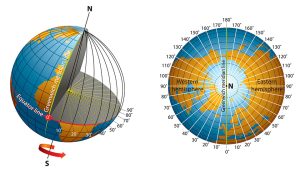The global litter problem is massive and can seem overwhelming – but tackling it is not nearly as difficult as it seems. Want to know How to Be a LitterHero? We have broken down the litter problem into simple items that anyone can act on, locally.
Prevention
The single easiest way to tackle the litter problem is to
produce less waste in the first place. The number one source of litter is waste packaging. There are a number of ways to reduce the waste you generate but the simplest one of all is to
consume less.
The next best thing is to choose products that have minimal packaging of a recyclable or biodegradable nature. Which ever method of litter prevention suits you best, it will work even better of you can bring friends and family on board!
Spread the word and share your reasons for preventing litter, you will be making a change and spreading change by changing mindsets and paradigms. Below are two ways to move forward.
Education
The action of publicly cleaning up litter, in public places is an act of advocacy and education, which speaks louder than words. It highlights an issue that becomes as accepted as it is prevalent and damaging.
By picking litter in public you make the statement that “Litter is not normal and it’s not OK”.
Legislation
In terms of making a change, more important even than cleaning up is raising awareness, challenging the acceptance of kerb side litter and pressuring local authorities to legislate or enforce existing legislation.
Don’t do it alone, join an existing group or create your own – many voices are louder than one.
Elimination
While the easiest, simplest and most powerful, way to reduce waste and litter is to prevent it in the first place, there is so much litter already in our environment that we need to take direct action to clean it up!
You don’t need to organise or take part in massive actions – although they are great for raising awareness. Even the smallest actions add up to a massive positive change, not just from the litter you remove, but because other people get inspired by your actions.
Plan
As you commute in your daily life, you pretty soon start to see which places are most affected with littering. Make a note of such places so you can target them first, and plan how best to tackle those areas – alone or with friends, with gloves or a litter picker, or should you call the local municipality to help?
Act
The very simplest way to get started is just the next time you walk anywhere and spot a piece of litter on the ground, in a bush or on a bench – grab it and bin it! Remember to keep it safe and clean! We have listed a few simple and inexpensive tools we use to make it easier to clean up litter anywhere.
Tools
From time to time, as I walk about town I spot a discarded box or wrapper and just pick it up and drop it in the nearest bin, but it’s safer, more hygienic and highly recommended to use the right tools to make the job, quick fun and much easier.
Here are our suggested Litter Hero clean up tools, with affiliate links, so if you click to buy any of the suggested tools, LitterHero may earn a small commission!
Litter Picker
Save your back, keep your hands clean and have some fun! With a good quality litter picking tool, you can pick up trash from hard to reach shrubs or ponds and lakes.
We recommend this picker from Amazon XXX
Gloves
When the going gets heavy and the litter picker just can’t handle lifting the weight, I sometimes grab a pair of sturdy leather gloves and really get stuck in.
We recommend this picker from Amazon XXX
Bags
These are always handy of you have dogs or kids and I carry a roll in the back of the car, and yes, a roll in the office in case I decide to get so air and pick up some trash as I walk!
Pick your favourite size of bag from your local shop or bag drawer!
Aren’t plastic bags part of the litter problem?? Yes they are, but my pragmatic choice has been to remove litter that is in the environment and place it into the municipal waste stream instead.


